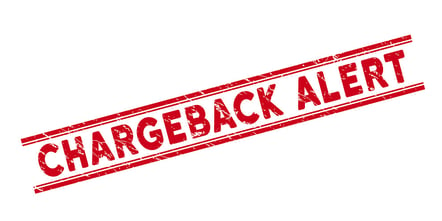Retail compliance requirements are more numerous than ever these days, creating challenges for retail vendors as they try to meet routing guide demands and avoid chargebacks. These chargebacks – vendor penalties for not following the retailer’s shipping guidelines – add a layer of stress for retail vendors and a solid revenue stream for the retailers themselves. In this article, we’ll examine the most common retail chargebacks that we see and tell you what you can do about them.
The most common retail chargebacks
 In the current retail supply chain, chargebacks come as no surprise and are even so predictable that many vendors factor a percentage of infractions into their annual logistics budget. But do you really want to give retailers free money? Vendors would do well to start by ensuring compliance with common chargeback-causing offenses, beginning with the following violations.
In the current retail supply chain, chargebacks come as no surprise and are even so predictable that many vendors factor a percentage of infractions into their annual logistics budget. But do you really want to give retailers free money? Vendors would do well to start by ensuring compliance with common chargeback-causing offenses, beginning with the following violations.
- Packaging violations. Retailers are very specific in the way that they want their products packaged. Missteps here on the part of vendors can result in costly chargeback fines that can add up quickly. Common violations include non-compliance with purchase orders (e.g., the product was supposed to be configured in 12-pack cases, but it shows up at the retailer in 6-packs), failure to include labeling or barcodes on individual polybags, failure to pack individual polybags into a larger box, failure to remove banding from boxes prior to retail pickup, unscannable ticket barcodes, and incorrect ticketing (e.g., UPC, item number, description, color and/or size codes).
- Purchase order violations. As exemplified by Walmart’s On-Time-In-Full (OTIF) policy, retailers don’t take kindly to orders that deviate from the original purchase order. If the order arrives looking different from what the retailer expects in any way, you can expect a chargeback for each violation. Additional purchase order ‘NO-NOs’ include failure to acknowledge receipt of the order in a timely fashion, failure to ship the right product or product quantity, and failure to abide by the purchase order ship windows set by the retailer.
- Transportation violations. Another key area in which vendors fall short of retail compliance requirements is transportation and transportation routing. If an order is shipped to the retailer too early or too late, a chargeback will ensue. Chargebacks will also apply if the pallet configuration is smaller or larger than specified by the retailer purchase order (such issues make it more difficult for the retailer to optimize freight on its own trailers) or if the wrong product is included in an order.
- Late/Missing/Invalid ASN. This violation garners a charge of anywhere from a few dollars per carton up to hundreds of dollars per ASN. When retailers are reliant on their 856 for notification and receiving of products, a late, missing, or invalid ASN is assessed a penalty quickly. The ASN provides a productivity benefit by keeping the inbound handling and receiving processes moving swiftly throughout the retailer’s DC.
- Order Fill Rate. Violations attributed to fill rate shortages or unauthorized item substitutions, can be assessed a penalty of 5%-15% of the merchandise cost. On the flip side, although shipping an overage against the ordered quantity doesn’t warrant a financial penalty, the vendor has basically given the retailer additional product at their expense.
Other retail compliance tips
As you button up your operations to avoid the retailer chargebacks listed above, there are additional steps you can take to meet retail compliance requirements.
In addition to knowing your retailers’ routing guides inside and out, you should try to understand the key performance indicators (KPIs) that are most important to your retail partners. What are the most common violations they issue chargebacks for? Which violations carry the steepest penalties? By knowing what’s most important to your retailers, you can optimize your operations to stay on their good side.
You should also know that chargebacks can be fought – and successfully. If you are issued a chargeback that you feel is incorrect, you can fight it with the retailer in hopes that it will be overturned. To improve your odds at success, be sure to document the events and communications in question each step of the way in order to support your case. The downside to fighting chargebacks is that the process takes time – time in which you’ll be tying up your own resources and taking them away from other projects.
Instead of using your own resources for chargebacks or compliance in general, however, you can partner with a third-party logistics (3PL) provider that can handle it for you. As 3PLs handle supply chain operations for many different companies, they have a solid understanding of what it takes to comply with a wide range of retailer shipping requirements. Some 3PLs, like Weber Logistics, even have a dedicated compliance team that is solely dedicated to staying up to date with routing guides, helping their customers meet retail compliance requirements, and fighting chargebacks on behalf of their customers, when necessary.
Weber Logistics is a West Coast 3PL that has standing delivery appointments with many major retailers in the Western U.S. We help our customers stay current and stay compliant to avoid all the chargebacks listed in this article – and the many more that aren’t. To learn more about how we can help you to reduce chargebacks and forge stronger relationships with your retail partners, contact Weber today.





 Capital Management
Capital Management